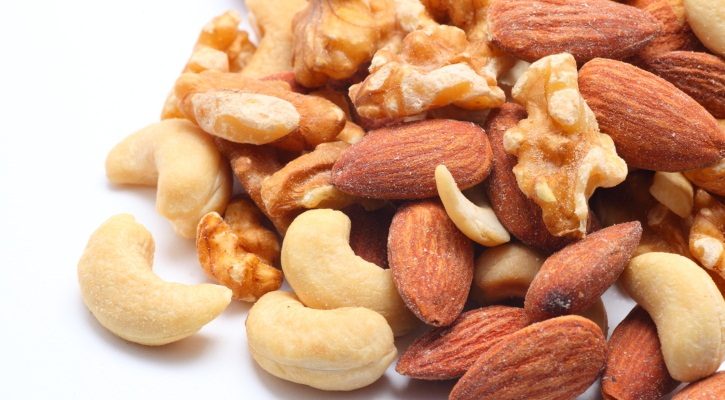
I have previously written several articles about the benefits of consuming more nuts in your diet. However, there is some fear regarding the amount of fat in nuts and how those added calories from fat affect body weight.
Although nuts do contain high amounts of fat, they also contain reasonable amounts of protein and fiber. The great thing about nuts is that you don’t need to eat too many to enjoy the many benefits they can bring to your health.
Recent published evidence can lay your fears regarding the consumption of nuts to rest.
This new study found that people who ate more nuts (Brazil, pistachio, and walnuts) were 37% to 46% less likely to become obese compared to those who ate the fewest amounts of nuts. The study also found that those participants who consumed the highest amounts of nuts had a lower risk of developing metabolic syndrome or diabetes!
“This is another study that shows there is an association between eating nuts and not being obese and having less tendency to have metabolic syndrome,” said one of the authors of the report. This certainly has been the case as previous studies have reported very similar results.
In the case of this study, the researchers gathered data from 803 adult men and women and found that those who consumed at least 16 grams (1/2 ounce) of nuts per day had an average BMI of 27 compared to those who ate five grams of nuts per day and had an average BMI of 30.
The researchers also discovered that for every additional one ounce serving of nuts consumed per week by the participants, there was a corresponding decrease in the risk of developing metabolic syndrome by seven percent! Although this does not seem like a big issue, it is when you consider that this improvement in risk reduction was seen after a difference of a one ounce serving of nuts per week!
Nuts are full of the very healthy monounsaturated omega-9 fats which increase fullness, decrease blood sugar, blood pressure, inflammation, and enhance insulin sensitivity. The improvement in insulin sensitivity is strongly associated with less fat gain, better control of blood sugar, and lowered levels of insulin. This equates to a much lower risk for the development of metabolic syndrome, diabetes, heart disease, and stroke.
Another recently published study that looked at the effects of nut consumption found that those who ate the most nuts were less likely to die during a 24-year follow up period compared to those who ate the lowest amount of nuts.
Nuts are a great source of fat, protein, and fiber. They also contain generous amounts of nutrients and antioxidants.
If you consume one ounce of nuts per day, you will not gain weight and your health status, including disease risk factors and longevity, will actually improve with time.
Sources:
Seaman, A., “Eating Tree Nuts Tied to Lowered Obesity Risk,” Medscape web site; http://www.medscape.com/viewarticle/818981, last accessed Jan. 21, 2014.
Jaceldo-Siegl, K., et al., “Tree Nuts Are Inversely Associated with Metabolic Syndrome and Obesity: The Adventist Health Study-2,” PLoS ONE 9(1): e85133.













